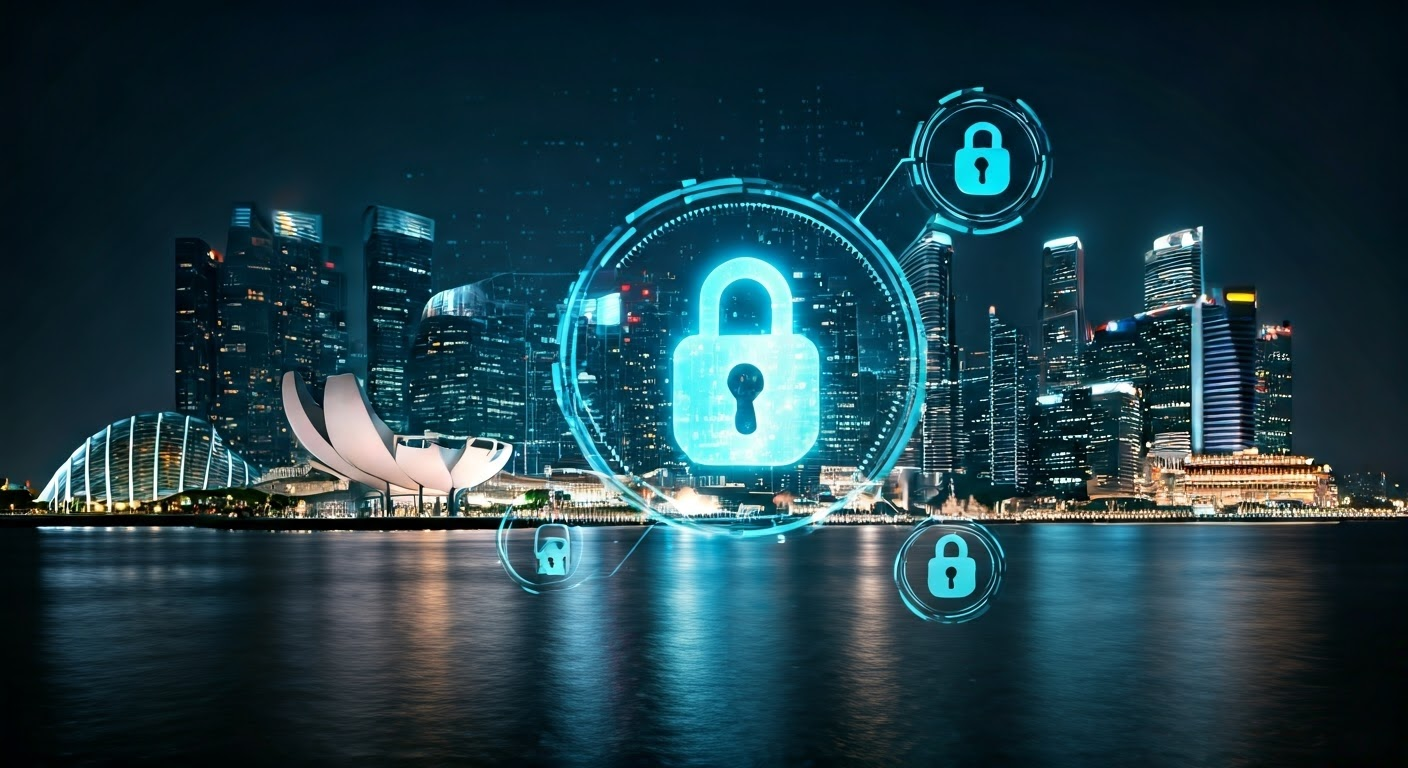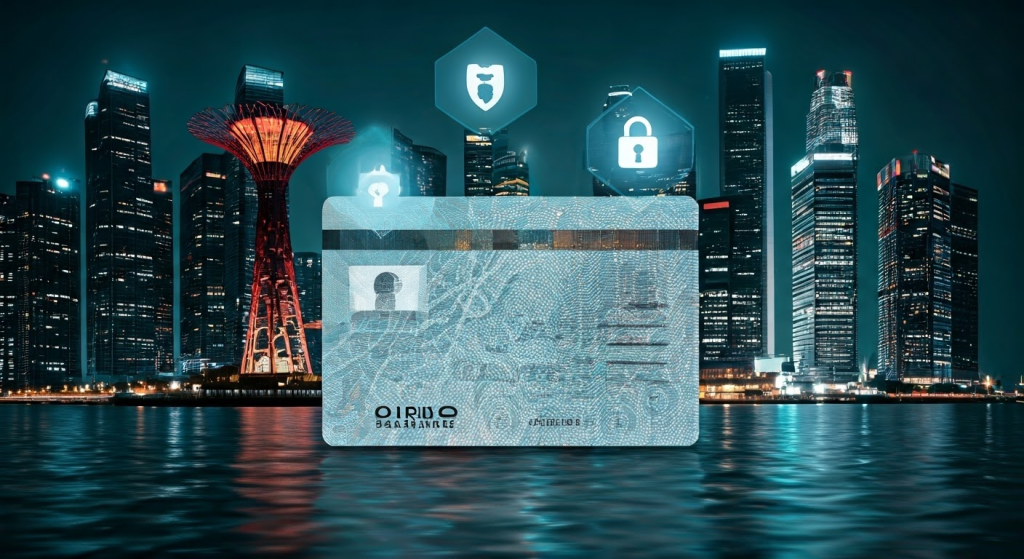
Key Highlights
- Your NRIC number is highly sensitive personal data. Treat it with utmost care.
- Leaving your NRIC lying around makes it easier for someone to steal your identity. Avoid this at all costs.
- Be wary of digital platforms asking for your NRIC details. Not all platforms have robust data protection measures in place.
- If a business insists on retaining a copy of your NRIC, make sure you strike out a portion of it and indicate the purpose.
- Consider investing in a personal shredder to safely discard documents containing your NRIC information.
Other Tool : NRIC Generator | NRIC Validator | Bulk NRIC Generator | Bulk NRIC Validator | NRIC Barcode Generator
Introduction
The recent case where full NRIC numbers were accidentally shared on the Corporate Regulatory Authority’s new Bizfile portal showed how important it is to protect your NRIC in Singapore. This incident was quickly handled, but it made people and organizations think about their data protection methods. This article will help you understand why your NRIC matters and what best practices you can use to keep this important document safe.
Understanding NRIC in Singapore
Singapore’s National Registration Identity Card, known as the NRIC, is not just a form of ID. It is a special identifier given to every citizen and permanent resident. The card has important information like your full name, NRIC number, photo, and other details.
The NRIC system is a key part of many processes in Singapore. It is essential for daily activities, such as opening bank accounts and using government services.
The significance of NRIC to Singaporeans
Holding a national registration identity card (NRIC) is an important step for Singaporeans. It means they are officially recognized by the government. All citizens and permanent residents aged 15 and older must have this card.
The NRIC is not just a legal document; it also has personal importance. It serves as a personal identifier. This card allows people to easily access different parts of life in Singapore, such as healthcare, education, jobs, and social services.
Because of its many uses, it is very important to keep the NRIC safe. Each card has a unique identification number. If this card gets into the wrong hands, it could be misused. That is why understanding how to protect the NRIC is very important for all Singaporeans.
Legal framework governing NRIC usage
Singapore has set up strong laws for collecting, using, sharing, and protecting NRIC information. The Personal Data Protection Act (PDPA) is enforced by the Personal Data Protection Commission (PDPC). It provides clear rules for organizations that handle personal data, including NRIC details.
The Corporate Regulatory Authority (ACRA) highlights how important it is to keep NRIC information safe in its guidelines for businesses. These guidelines stress that organizations are responsible for implementing good security measures to guard the personal data they collect, like NRIC information.
Organizations need to follow a duty of care approach. This means they must keep the NRIC details given to them by individuals safe and private. They also need to follow rules about data minimization. This involves only collecting and keeping NRIC information that is truly needed for a specific purpose.
Risks Associated with NRIC Misuse
The misuse of NRIC can have serious effects. It can put both people and society at risk. This is why it is important to understand what can happen if NRIC is compromised. We need to recognize how vital it is to protect it.
In our digital world, identity theft is a rising danger. This makes it very important to be careful with personal information. That’s why you must keep your NRIC safe from anyone who might try to access, share, or use it without permission.
Identity theft and fraud scenarios
Identity theft happens when someone takes your personal information, like your NRIC number, and uses it for bad reasons. With your NRIC details, people can pretend to be you. They can open bank accounts, get loans, make purchases without permission, or even commit crimes in your name. This can lead to serious money problems for you.
The risk of scams from using NRIC information is very real. Scammers use tricks, known as social engineering. They take stolen or publicly available NRIC information to seem believable and earn your trust. They might pretend to be government workers, bank employees, or other trusted people. Then, they try to trick you into giving up private info or sending money.
It might feel easy to share your NRIC details or use simple passwords related to it. But those habits give you a false sense of security. It’s crucial to be careful about whom you share your NRIC with. Always be suspicious of unexpected asks for personal information.
The impact of careless NRIC handling
Careless handling of NRIC information can cause big problems. It can hurt personal security and national security. For example, if you lose your NRIC, someone might use it for identity theft or to open fake bank accounts. This could lead to major financial losses and damage to your name.
For businesses, not properly protecting customer NRIC information can lead to data breaches. This can harm their reputation and make customers lose trust. Businesses may also get legal and financial penalties if they don’t follow the Personal Data Protection Act (PDPA) and data protection obligations.
These privacy concerns show how important it is to manage NRIC information responsibly. People should treat their NRIC just like they would treat any valuable document. They need to keep it safe at all times.
Safeguarding Your NRIC Number
The safety of your NRIC number begins by knowing the risks and adopting good habits online and offline. Simple actions can help reduce the chances of your NRIC being compromised.
When you take charge and act responsibly, you help protect your identity and keep your NRIC information safe. Always keep in mind that a little prevention can save you from big problems later.
Best practices for individuals
As individuals, it’s important to be careful and follow best practices to protect your NRIC information. Simple steps can greatly reduce the chance of your NRIC being stolen and identity theft happening.
Here are some key actions you can take:
- Minimize Disclosure: Only share your NRIC details when it’s really needed, for legal or official reasons.
- Be Wary of Suspicious Requests: Be careful when someone asks for your NRIC information, especially online or over the phone. Make sure the request is real before you share any personal details.
- Secure Physical Documents: Keep your physical NRIC card in a safe place, like in your wallet or a locked drawer.
- Report Loss Immediately: If you lose your NRIC, tell the police and the Immigration & Checkpoints Authority (ICA) right away to stop any misuse.
By following these simple steps, you help protect your identity and reduce the risks that come with NRIC misuse.
Guidelines for businesses requesting NRIC details
The responsibility to protect NRIC information does not only fall on individuals. Businesses and organizations, especially in the private sector, also play an important role in this duty. They need to make sure that they collect, use, share, and manage NRIC data safely and responsibly.
Following the advisory guidelines from the PDPC is very important. Private sector organizations must focus on their data protection obligations under the PDPA. They should treat NRIC information with great care, ensuring it remains confidential and secure. This means they need to use suitable technical and organizational measures to guard NRIC data from being accessed or used without permission.
Also, organizations must be clear with people about how they collect, use, and share their NRIC details. Individuals should know why their information is gathered, how it will be used, and how long it will be kept. Being open like this builds trust and helps individuals decide if they want to share their NRIC information.
Digital Security Measures for NRIC Protection
With more people moving to digital transactions and online interactions, protecting your NRIC online is very important. You need to use strong security measures to keep your NRIC information safe from unauthorized access, use, or release.
By focusing on encrypted storage and following secure sharing rules, you help make your NRIC data much safer online.
Encrypted storage solutions
In today’s fast-growing digital world, using encrypted storage is very important. It helps protect sensitive personal data, like NRIC information. Encrypted storage uses special techniques that change data into a format that cannot be read. This makes it hard for unauthorized people to access it.
Whether you are keeping a digital copy of your NRIC or managing large amounts of customer data, using encryption is vital. It adds extra security for your data. This is especially important for sensitive information like NRIC details. Encryption stops unauthorized access, even if a security breach happens.
Always choose trustworthy storage solutions that have strong encryption features. This way, your NRIC data stays private and safe online. Look for options like encrypted hard drives, cloud storage that offers encryption, or password-protected folders with encryption turned on. These methods can help you protect your NRIC information effectively.
Secure sharing protocols
Secure sharing methods are very important today. They help keep sensitive information like NRIC details safe while you send it. These methods stop people from getting access or intercepting the data. One popular way to do this is by using secure file transfer protocols (SFTP). SFTP encrypts data as it travels, which protects it from unwanted access.
Using secure channels is key, but strong means of authentication are also very important. It’s essential to check the identity of the person you are sending information to before you share anything sensitive. Password protection, two-factor authentication, and biometric checks provide extra security. This helps ensure that your NRIC data does not end up with the wrong person.
Be very careful and try not to share your NRIC details through unsafe email, messaging services, or public Wi-Fi. Always choose secure methods and strong authentication practices when you send your NRIC information online.
Conclusion
In a world where identity theft is common, protecting your Singapore NRIC is very important. It is crucial to understand what NRIC means, the laws about it, and the risks of misuse. You can protect your NRIC better by following best practices for both people and businesses. Use security methods like encrypted storage and safe ways to share information. Stay alert, change your passwords often, and learn how to handle your NRIC safely. By taking these steps, you help make the online space safer for everyone. Remember, keeping your NRIC secure is your responsibility.
Frequently Asked Questions
How often should I change my NRIC-linked passwords?
It is a good idea to change any passwords linked to your NRIC right away. Don’t use your NRIC number as a default password. Regularly update your passwords. Make sure they are strong and unique. Also, it is important to turn on multi-factor authentication when you can. These steps are very important to help protect yourself from identity theft.
How can I protect my Singapore NRIC from identity theft or fraud?
To keep yourself safe from identity theft and fraud, be careful when sharing your NRIC details. Only share this information when it is necessary, such as for substantial financial aid applications or legal requirements. Always make sure to follow the Personal Data Protection Act.
Are there any best practices for securely storing and sharing my Singapore NRIC information?
When you store your NRIC information, it’s important to follow good rules for data protection. Use encrypted storage for any digital copies. Keep your physical NRIC card in a safe place. When sharing your data, choose secure methods that encrypt sensitive data while it is being sent. This way, you can be sure it’s transmitted safely.


